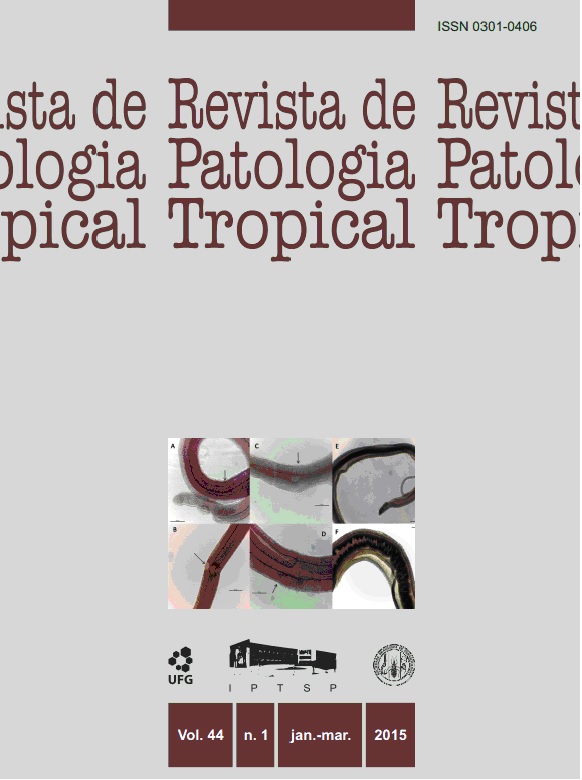Use of the polymerase chain reaction (PCR) for the therapeutic control of chronic Trypanosoma cruzi infection
DOI:
https://doi.org/10.5216/rpt.v44i1.34815Keywords:
Chagas disease, PCR, ELISA, drug therapy.Abstract
Current norms for the etiological treatment of chronic Chagas disease, recommended by WHOor currently in force for Argentina and Brazil, advise the control of therapeutic efficacy usingconventional serological and parasitological tests. However, serology usually remains positive 10 ormore years after treatment and parasitological tests are insensitive in the chronic stage. PolymeraseChain Reaction (PCR) is more sensitive than parasitological tests and could provide earlier evidenceof therapeutic failure. We offered benznidazole treatment (5 mg/kg/day, 60 days) to 138 patients(age=16 to 35 years old), chronically infected with Trypanosoma cruzi. Therapeutic efficacy waschecked with periodic PCR, haemoculture and conventional serology in two groups of patients: One(TG) accepting and complying with treatment and the other (NTG) rejecting it. Before benznidazoleadministration, PCR displayed a diagnostic sensitivity of 41.3% (57/138) and haemoculture 7.2%(10/138). Sixty months after treatment, TG displayed a cumulated PCR positivity of 28.1% (16/57)and NTG 54.1% (20/37; p=0.0166). Even though the sensitivity of PCR is limited, repeated negativeresults of a standardized method may reveal lower parasitaemia or probable cure, in 71.9% of treatedpatients, to be confirmed with serological follow up.Downloads
Downloads
Published
How to Cite
Issue
Section
License
The manuscript submission must be accompanied by a letter signed by all authors stating the full name and email address, confirming that the material has not been published or is under consideration for publication elsewhere, and agreeing to transfer copyright in all media and formats for Journal of Tropical Pathology. The authors will not be paid for published articles. They are solely responsible for the content of those articles, even if the Editor holds the right to adjust them to the norms of the journal.
The reviewers will not be paid for the peer review process.

